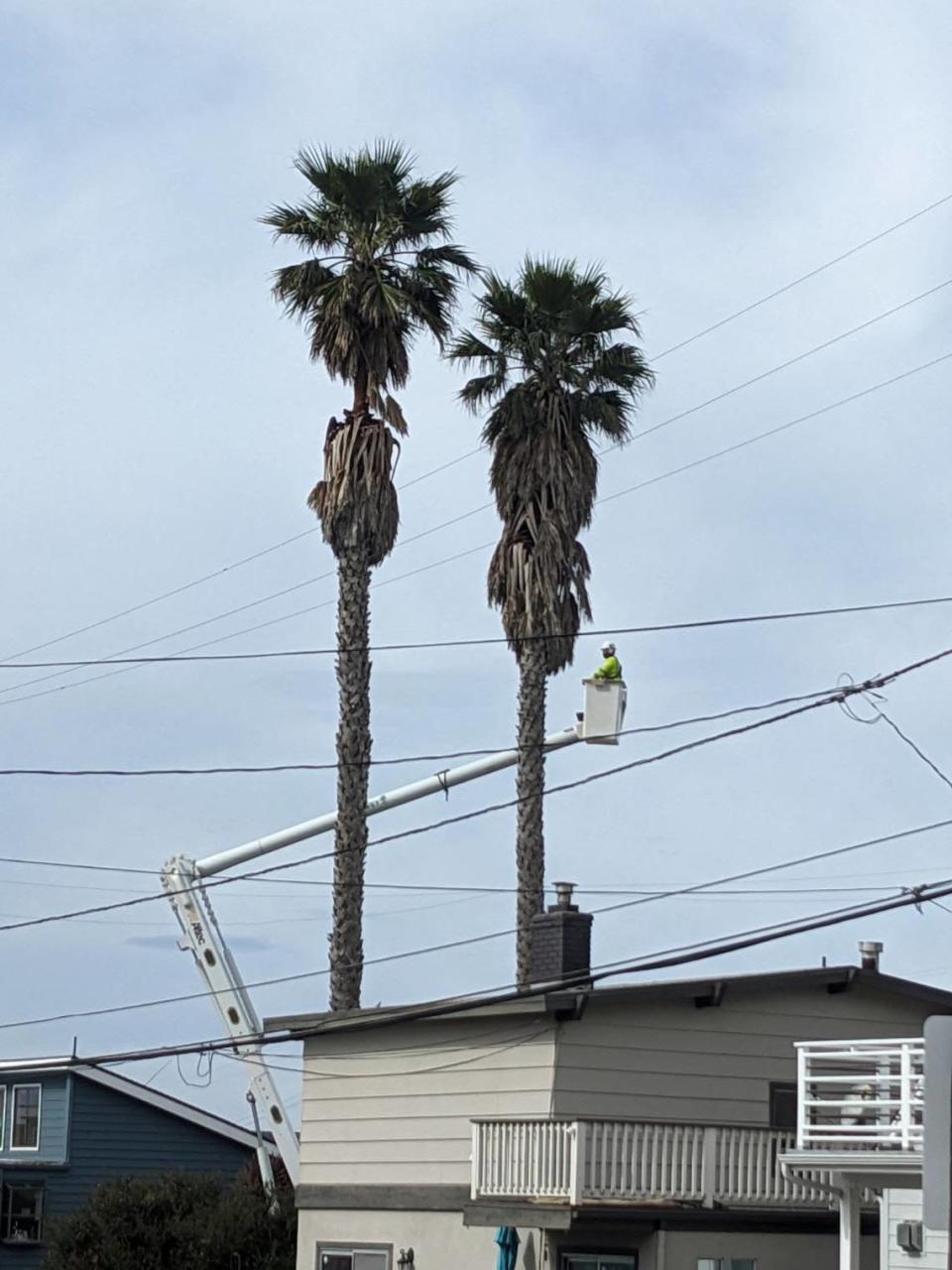Tree trimmers destroyed a protected nest in Morro Bay. PG&E is ultimately to blame | Opinion
Bird lovers in Morro Bay are accusing PG&E of destroying the nest of a great horned owl, along with two viable eggs.
The utility was supposed to get city approval before proceeding with a tree trimming project on Yerba Buena Street. Instead, a PG&E contractor went ahead and trimmed two palm trees and, in the process, inadvertently dislodged the owl nest and temporarily scared off a pair of kestrels.
If you are inclined to think this is no big deal, think again.
Great horned owls are protected under the Migratory Bird Treaty Act of 1918, which is “intended to ensure the sustainability of populations of all protected migratory bird species.”
That this would happen in Morro Bay is especially galling.
The community is a premier spot for bird watching. The National Audubon Society includes it on its list of important bird areas. It even hosts an annual Winter Bird Festival.
Is it any wonder, then, that residents were angry when they learned what happened?
According to PG&E, the tree crew never saw the nest. Even so, the company is ultimately responsible for what happened.
It has vowed to improve communications — it’s already reviewed bird nest procedures with its vegetation management crews, according to a spokesperson — and offered to place an owl box in an adjacent tree.
PG&E also released an appropriately contrite statement: “We deeply regret that the necessary safety-related work on these two trees resulted in the accidental loss of a bird nest and eggs,” a spokeswoman said via email.
That doesn’t excuse ignoring regulations designed to protect nesting birds.

PG&E is required under an annual maintenance agreement to notify the city of Morro Bay prior to conducting any tree trimming. That gives city staff a chance to inspect the trees for nesting birds.
PG&E neglected to do so, and as a result, the utility may be fined $100 — the maximum for a first offense, according to Tribune reporter Stephanie Zappelli.
The city also prohibits tree trimming and removal during nesting season, which runs from Feb. 1 to June 30. Emergency permits can be granted during that time, but PG&E didn’t bother to apply for one.
The utility also could be in trouble with federal regulators.
The Migratory Bird Treaty Act prohibits killing migratory birds and their eggs without permission from the U.S. Fish and Wildlife Service; violators can be fined up to $10,000.
There are indeed times when ensuring public safety takes precedence over protecting wildlife, but this was not one of them. This was preventive maintenance that an arborist had recommended to avoid future outages. That’s necessary work, but not a dire emergency.
Besides, how long would it have taken to notify the city?
While it is true that San Luis Obispo County’s protected habitats have suffered far greater harms in the past, this isn’t just about the loss of two owl eggs. For a major company like PG&E to cut regulatory corners in this way is disturbing.
Whether this was the fault of the contractors or the company is irrelevant. PG&E is responsible, and must be held accountable. Regulatory agencies should investigate the incident and levy applicable fines — whether it’s $10,000 or $100.

